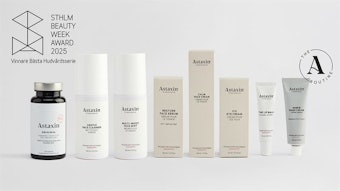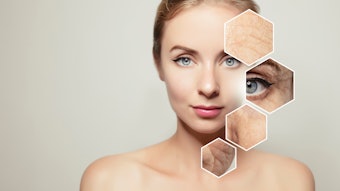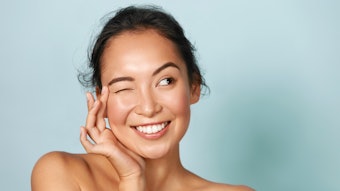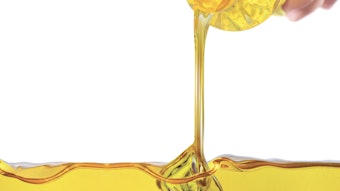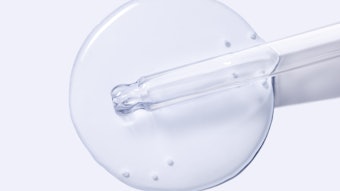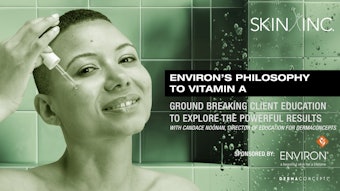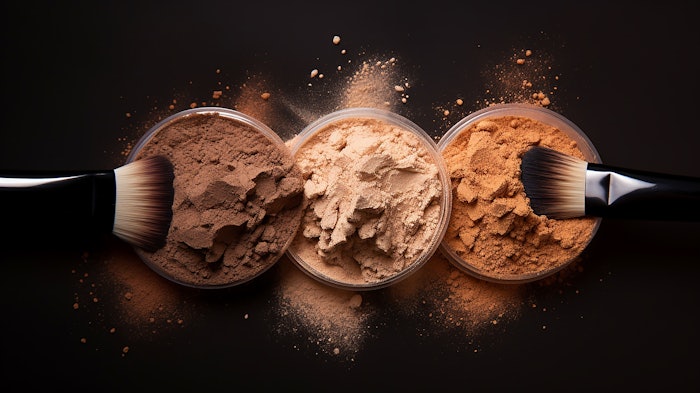
What does the last step in our regimen really mean? Most of us are probably thinking SPF or maybe even a moisturizer. This is true, and for years this has been the idea behind a healthy skin regimen.
However, we need to think beyond our “skin care” products and understand our last step during the day is our makeup and foundation. We tend to scrutinize labels and look for the healthiest ingredients for our “skin care” formulations, which is so important for longevity of skin cells and creating a beautiful skin regimen. However, the makeup category seems to get missed, and in many cases, the ingredients in these foundations are not even looked at. Before we jump into this discussion, let’s lay the foundation of a healthy synergistic skin care regimen.
A Synergistic Home Care Routine
A consistent at-home regimen is essential for healthy skin and slowing down skin aging. A simple three-step regimen for the morning and evening routine can transform your skin.
Start with a thorough cleanse without over stripping the skin. Remember in the evening you are removing the grime, makeup and pollution that has accumulated from the day. After cleansing, add a building and strengthening serum that will boost antioxidants and infuse nutrients into skin during the day. At night, add a rejuvenating formula that will work with the circadian rhythm and support cellular repair. These rejuvenating formulations should help to soften fine lines and wrinkles, brighten complexion and reduce bacteria.
Now, the skin is ready for a hydrator. Selecting the proper hydrator is an important step for every routine. For those with drier skin, opting for a lipid-based or creamier hydrator may be key. If you are oily, a lightweight gel or even just sun protection may be enough during the day. The majority of skin types will use a different hydrator from morning routine to nightly routine for the perfect balance, and to keep the skin healthy and hydrated.
Everyday skin care and professional services are great investments into the health and beauty of our skin. We go out of our way to find the best skin care, but are we considering the last step in our morning routine? Have you stopped and researched the ingredients in your makeup and cosmetic lines?
Looking at Makeup
Knowledge of ingredients is becoming greater than ever before. The trouble is, that same level of awareness tends to not carry over to products in a makeup bag. It’s easy to overlook the ingredient deck of cosmetics primarily because we’re not looking for them to affect change in the skin, we’re merely looking at how well it performs in enhancing or downplaying certain features.
For the majority of those using makeup, it’s typically on the skin for a significant amount of time, used every day and most definitely impacts the overall health of the skin. It’s so important to be educated on what to look for and what to avoid in cosmetics.
Related: What’s In Your Makeup?
Ingredients To Look Into
While it has improved over the years, there are still several cosmetic brands that use harsh chemicals, parabens, parfum (synthetic fragrance) and other ingredients that may harm the skin, although there have been debates on this matter. These ingredients can be found in foundations, powders, mascaras, eyeshadows, lip products, highlighters and more.
Sodium Lauryl Sulfate. This is a surfactant most commonly found in cleansers. It is also found in various makeup products, primarily mascara and is a known eye irritant.
Parabens. These are a widely used preservative. They prevent bacteria, mold and yeast from growing in cosmetic products, but they also contain estrogen-mimicking properties that have been linked to certain cancers. Although, to date, those concerns have not been (clearly) substantiated.
Petroleum Distillates (PEG/PPG). These are synthetic chemicals, including paraffin and mineral oil, known as comedogenics and carcinogenic. These can clog pores getting sebum stuck and creating bacteria.
Synthetic Vitamin E. This is commonly found in cosmetic formulations and many lip products. This form of vitamin E is inferior and may cause free radical damage versus reversing or stopping free radicals.
Parfum. This is one of the most widely used and somewhat of a catchall term that allows manufacturers to get away with using chemical instead of pure, natural fragrances like essential oils. They can also irritate sensitive and rosacea-prone skin.
Chemical Sunscreens. These are commonly found in cosmetic formulations with chemicals like avobenzone, oxybenzone and octinoxate, which have been found to be carcinogenic and endocrine disruptors. Although, to date, those concerns have not been (clearly) substantiated.
Minerals. This one might be confusing, but remember not all minerals are created equally. The purity of minerals has a major impact on your skin. When evaluating, ask about water testing, how many times minerals are milled and look at what other ingredients are formulated with the minerals. You can do your own water testing by getting a small glass of water, add in the minerals and stir. If the water gets muddy, this is not a pure milled mineral, and those elements can get into the skin causing irritation and aging.
Ingredients to Promote Healthy Skin
Advancements in ingredients and distillation processes have made it possible to formulate with pure, cleaner ingredients in cosmetics. Here are some healthy, skin-promoting ingredients to look for in cosmetics.
Carrot Seed Extract. This provides antioxidant, antibacterial and beta-carotene support. It helps hydrate, reduce sensitivities and brings new life to the skin.
Zinc Oxide. This is the safest, non-irritating, pure mineral broad spectrum UV protectant. Zinc oxide also has the ability to sooth skin and provide healing relief.
Cetearyl Olivate/Sorbitan Olivate. This is derived from pure olive oil. This ingredient maintains integrity of the skin barrier, reduces inflammation and protects skin from harsh environments.
Omega EFAs. These soften, hydrate and nourish skin. A blend of linoelic and oleic acids work to prevent skin from aging, while reducing inflammation.
Olive Fruit Oil. This is rich in antioxidants, assists in slowing the aging process, prevents water from evaporating from the skin and absorbs UV rays.
L-Sodium Hyaluronate. This is a natural humectant that binds hydration in the epidermis, leaving the skin moisturized without feeling weighed down.
D-Alpha Tocopherol. This is an antioxidant superstar that protects the skin, promotes healing and skin strengthening, while reducing transepidermal water loss (TEWL).
Bismuth Oxychloride. This is an inorganic compound commonly found in mineral makeup. It provides a smooth, luxurious feel and helps keep powder looking fresh all day.
Boron Nitride. This is found in various crystalline forms, improves the application of mineral foundations, and adheres to skin for long lasting wear.
Mica. This is a natural silicate mineral that offers a luminous glow to the skin.
Mineral makeup gives the skin a more natural look, and in general, is a skin-friendly alternative to conventional makeup. The minerals have purifying benefits and allow the skin to breathe, which is critical, especially for acne. Look for pure minerals formulated with the ingredients above for a healthy, flawless look.
Another important factor when looking at mineral foundation options is that they are non-comedogenic, meaning they’re less likely to clog pores and cause breakouts. This can be particularly beneficial for individuals with sensitive or acne-prone skin. Sun protection is another plus, as many mineral makeup products contain minerals like titanium dioxide and zinc oxide, which provide sun protection by acting as physical barriers against UV rays.
Mineral Makeup for the Win!
I am excited for you to take your last step to new heights, and create a complete healthy, beautiful skin care routine from true start to finish!
Shannon Esau the CEO and national educator at Rhonda Allison Cosmeceuticals. She brings more than 20 years experience in the esthetic industry. Esau owned skin care salons in the Dallas/Ft. Worth area, has studied chemistry in skin care formulations and has been mentored by Rhonda Allison for decades. www.RhondaAllison.com and www.REDmethod.com. For more information about Pigmentation Solutions, go to rapigmentationsolutions.com.

